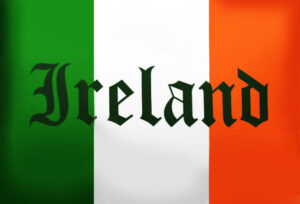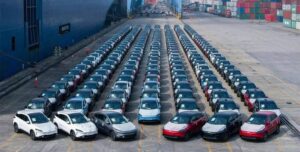
Expectations of rising storage prices are growing in the memory market: TrendForce predicts that contract prices for NAND Flash will increase by 33-38% in Q1 2026 compared to the previous quarter amid shortages and a shift in capacity toward server segment demand.
Separately, for the corporate segment, Nomura Securities (according to industry media reports) admits that SanDisk may raise prices for high-capacity 3D NAND for enterprise SSDs by more than 100% quarter-on-quarter in March 2026, which effectively means a doubling. However, a direct transfer of this dynamic to retail SSDs for PCs is not guaranteed — the segments are linked by production chains but differ in terms of contract structure and retail inventories.
There are no confirmed open sources confirming statements that hard drives will become “virtually unavailable” by March 2026. However, the HDD market is also becoming more tense: there have been reports of a rise in HDD contract prices of approximately 4% q/q in Q4 2025 and expectations of further pressure due to demand from data centers.
In Europe, the premium Samsung 990 Pro 1TB NVMe SSD is listed on price aggregators at around €153.99 in January 2026, while the mass-market WD Blue SN5000 1TB is listed at €119.99. If the “x2” scenario partially reaches the consumer segment, these levels could shift to around €240-320 per 1TB, depending on the model and supply channels.
In the US, the Samsung 990 PRO 1TB was priced at around $139.99 at major retailers, and the 8TB Seagate IronWolf HDD was priced at $199.99 on Newegg (higher at some retailers). With memory costs doubling and a persistent shortage, the upper price levels may become the “new normal,” but the speed of transfer to retail will depend on inventory levels and promotional activity.
In China, according to public displays and promotional materials, the WD Blue SN580 1TB was priced at around 405 yuan, and the Seagate IronWolf Pro 8TB was priced at around 1975 yuan at the end of December 2025. As the shortage intensifies, a growth scenario of tens of percent seems more realistic as a “base case,” while “x2” is more of a risk for individual corporate positions and periods of peak demand.

A petition on the Ukrainian Cabinet of Ministers’ website calling for criminal liability for physical violence against animals has gathered the number of votes required for consideration. According to the government website platform, the petition was submitted on January 5, and as of January 10, it had gathered the 25,000 votes required for consideration.
“We, the citizens of Ukraine, appeal to the Cabinet of Ministers of Ukraine with a demand to initiate amendments to the Criminal Code of Ukraine with the aim of introducing real, clear, and effective criminal liability for physical violence against animals,” the petition says.
The author of the petition states that the current legislation of Ukraine in the field of animal protection does not establish strict criminal liability for physical violence leading to suffering, injury, or death of an animal, and the existing sanctions do not have a sufficient deterrent effect.
“In European Union countries, particularly in Greece (Animal Welfare Act No. 4830/2021), physical violence against animals is classified as a serious criminal offense, and the most severe forms of cruelty are punishable by up to 10 years’ imprisonment. This approach has proven effective in reducing cases of animal abuse and is in line with European animal protection standards,” the author added.
In this regard, the government is required to amend the Criminal Code to establish: criminal liability for physical violence against animals resulting in physical pain, suffering, injury, or death of the animal; punishment — imprisonment for 5 to 10 years for such crimes for a first offense; establish a gradation of punishment: for the first act of cruel physical violence — imprisonment for 5 to 7 years; for a repeat offense or one committed with particular cruelty — imprisonment for 7 to 10 years; for systematic violations or in cases of serious consequences — a maximum term of 10 years; provide for additional restrictions that apply to such crimes: a ban on keeping animals for a period of at least 10 years after serving the sentence; creation of a register of persons convicted of cruelty to animals, with restrictions on the right to purchase, own, or care for animals.
As reported, on July 15, 2021, the Verkhovna Rada legislatively strengthened the fight against animal cruelty. In particular, the adopted law provides for the mandatory use of a leash for walking dogs and other domestic animals that may pose a danger to human life or health, as well as muzzles for dangerous breeds of dogs (in particular, Dobermans, Great Danes, German Shepherds, Rottweilers, American Bulldogs, and Bull Terriers). The law prohibits people who have been subject to administrative penalties or measures for committing offenses related to cruelty to animals from keeping animals for one year, as well as for ten years from the date of entry into force of a conviction against persons who have been held criminally liable for cruelty to animals or who have been released from criminal liability and the proceedings have been terminated due to non-rehabilitating circumstances. Cruel treatment of animals – cruelty to animals, including stray animals, is punishable by a fine of 200 to 300 non-taxable minimum incomes (3400-5100 UAH) with confiscation of the animal if the animal’s stay with the owner poses a threat to its life or health. Keeping dogs and cats in places where it is prohibited by the relevant rules, walking dogs without leashes and muzzles, as well as failure by the owner of the animal to clean up its excrement while the animal is in a public place is punishable by a warning or a fine of 10 to 20 non-taxable minimum incomes (170-340 UAH) and a warning or fine for officials of 20 to 50 non-taxable minimum incomes (340-850 UAH).
ANIMALS, CABINET OF MINISTERS, criminal liability, PETITION, violence

On January 1, 2026, a number of changes came into force in Ukraine that affect companies’ expenses, tax burdens, and foreign trade operations—from new state budget parameters and individual tax innovations to updates to energy tariffs and export licensing rules, according to the Experts Club information and analytical center.
The 2026 state budget has set new social standards that directly affect the wage fund, social security contributions, and the calculation of fines and mandatory payments linked to the minimum wage and subsistence minimum.
In terms of taxation, businesses should take into account the updated indicators for the simplified system and military tax. The tax service’s explanations for 2026 separately note the amounts of payments for individual entrepreneurs in groups 1-2, as well as the introduction/application of the military levy for single tax payers (in particular, a fixed payment for groups 1-2 and a percentage of income for group 3), plus a number of related administrative changes.
A separate section is devoted to labor regulation. Starting in 2026, the requirements for employers regarding the employment of people with disabilities will be updated (a change in the approach to meeting the quota and financial responsibility for non-compliance). This affects personnel policy, budgeting, and internal HR procedures, especially in companies with a large number of employees.
In foreign trade for 2026, the government has maintained zero quotas (a ban through quotas) on exports of natural gas of Ukrainian origin and a number of other items, while canceling quotas on exports of table salt and coking coal, and maintaining the licensing regime for certain agricultural items for export to a number of EU countries.
In the energy sector, the NEURC set the tariff for Ukrenergo’s electricity transmission services for 2026: for January-March – UAH 713.68/MWh (excluding VAT) for most system users and UAH 373.93/MWh (excluding VAT) for green electrometallurgy enterprises; for April-December – UAH 742.91/MWh and UAH 378.49/MWh, respectively (excluding VAT).
Changes in excise and financial matters are also important for certain industries. In particular, the schedule for increasing excise duty on motor fuel, previously introduced by amendments to the Tax Code, continues to apply, and an increased income tax rate has been set for banks for 2026.

The winner of the tender to conclude a production sharing agreement (PSA) for the extraction and enrichment of metal minerals within the Dobra lithium deposit (Kirovograd region), will be a consortium led by the Irish company TechMet (Dublin), according to The New York Times, citing two anonymous members of the PSA commission.
“Although (the decision) requires formal approval by the Ukrainian Cabinet of Ministers, officials said the agreement is essentially a done deal,” the newspaper writes.
Interfax-Ukraine has not yet been able to obtain official comment on this information from the Interdepartmental Commission for the Conclusion and Implementation of PSAs, which is headed by Minister of Economy, Ecology, and Agriculture Oleksiy Sobolev.
The agency also contacted the second participant in the tender, European Lithium Ukraine LLC, which, through the Australian company European Lithium Ltd, is a sister company of the American company Critical Metals Corp (CRML), but at this stage, they declined to comment on the NYT information.
The publication notes that the winning consortium has close ties to the administration of US President Donald Trump, as it includes Ronald S. Lauder, a friend of the US president and heir to the Estée Lauder cosmetics company, whom Trump has known since his college days.
TechMet’s largest shareholder is the US International Development Finance Corporation (DFC).
The NYT claims, citing a member of the PPP commission, that the consortium’s proposal is significantly better than the minimum investment of $179 million required by the terms of the tender.
As reported, the opening of the envelopes of the participants in the tender announced in September took place on December 15, 2025. Subsequently, the URPP commission had five days to check the submitted applications for completeness and, by January 12, 2026, to provide the government with substantiated proposals for determining the winner of the tender.
CRML, which is listed on the Nasdaq stock exchange under the ticker symbol “CRML,” announced its bid for the tender. positions itself as a leading mining development company specializing in critical metals and minerals, as well as producing strategic products necessary for electrification and next-generation technologies for Europe and its Western partners. According to the company, its flagship Tanbreez project, located in southern Greenland, is one of the world’s largest rare earth element deposits.
European Lithium, listed on the Australian Stock Exchange under the ticker symbol “EUR,” is a mining company engaged in the exploration and development of lithium, rare earth, precious, and base metal deposits. Its stated markets are Austria, Ireland, Ukraine, and Australia. According to information on the company’s website, it wholly owns the Wolfsberg lithium project located in Carinthia, Austria.
CRML had previously claimed its rights to the Dobra site, linking them to the transfer of assets from European Lithium, which in turn had acquired these rights from the Ukrainian company Petro-Consulting LLC.
In mid-June 2025, when he was head of the Office of the President, Andriy Yermak stated that the development of the Dobra lithium deposit could become the first pilot project within the framework of cooperation with the US.
As for the mining investment company TechMet, one of whose largest investors is the US government through the DFC, it announced in July 2025 its interest in participating in this competition and, if successful, building processing facilities with investments of more than $0.5 billion. In September, a DFC delegation accompanied by Ukrainian Ministry of Economy officials visited the Kirovograd region.
Earlier in 2025, TechMet CEO Brian Mennell reported that the company was part of a consortium interested in developing the potentially large-scale Dobra lithium deposit in Ukraine under a production sharing agreement. According to him, TechMet has been evaluating the Dobra project since 2023.
TechMet, according to information on its website, owns controlling or dominant minority stakes in 10 critical mineral assets on four continents. The U.S. international development finance corporation DFC is a significant shareholder in TechMet. “TechMet’s investment approach supports the broader policy goals of the U.S. government and its allies,” the website notes.
In addition, TechMet-Mercuria has been established as a joint venture with Mercuria, which is also a major shareholder in TechMet on a 50:50 basis. This is a physical supply chain management platform focused on marketing, trading, logistics, and risk management services for the range of technology metals that TechMet works with.
TechMet’s representative in Ukraine, Vladimir Ignashchenko, was vice president of the Ukrainian State Credit and Investment Company in the late 1990s, then deputy head of the Ministry of Natural Resources and the Ministry of Economy, in 2010-2011, he was first deputy head of the Ministry of Natural Resources when the ministry was headed by Nikolai Zlochevsky, and then advisor to Minister Eduard Stavitsky and Minister of Energy Igor Nasalik.
His son, Taras Ignashchenko, was for some time the director of Petro-Consulting (later renamed European Lithium Ukraine), which fought for the Shevchenkivske lithium deposit in Donetsk Oblast, now occupied by Russian aggressors, and the Dobra deposit.
The tender for the conclusion of a PSA for the Dobra lithium deposit was announced with the aim of exploring, extracting, and enriching lithium, niobium, rubidium, tantalum, cesium, beryllium, tungsten, and gold for a period of 50 years. The minimum investment for geological exploration is the equivalent of $12 million, and for the organization of mining and enrichment of lithium-containing minerals and other metal minerals – $167 million, but the final obligations are determined by the results of the tender.
The total area of the site is 17.07 square kilometers, and the deadline for submitting applications for participation in the tender is December 12, 2025. The participation fee is UAH 0.5 million.
According to the terms and conditions, the maximum share of compensation production, through which the investor is compensated for its expenses, is 70% of the total volume of production until the investor’s expenses are fully reimbursed, while the state’s share in profitable production must be at least 4-6%.
It is noted that the reserves and resources of lithium ores in the area were approved by decisions at the end of 2017 and in 2018 in the amount of 1 million 218.14 thousand tons (average Li2O content 1.37%) and P2 – 70.6 thousand tons (average Li2O content 1.43%).
Separately, the State Commission of Ukraine on Mineral Reserves (SCM) noted the presence of promising and forecast resources of associated useful components (P1+P2) in the lithium ores of the Dobra site: Ta2O5 – 4.75 thousand tons; Nb2O5 – 8.24 thousand tons; Rb2O5 – 104.07 thousand tons; BeO – 22.08 thousand tons; SnO2 – 4.46 thousand tons and Cs2O – 7.97 thousand tons.
The winner of the tender must ensure geological exploration of the subsoil and conduct an international audit of reserves at the site within two and a half years, as well as submit materials to the State Geological Committee on the assessment of lithium and other metal mineral reserves for approval.
After the conclusion of the PSA, the investor will be required, among other things, to search for, extract, and enrich (primary processing) lithium and possibly other metal minerals, and to ensure the comprehensive development and exploitation of the metal mineral deposit.
In addition, for the first time, the PSA tender documentation includes obligations for the investor related to the agreement signed at the end of April 2025 on the creation of the US-Ukrainian Investment Fund for Recovery, which has the first right to invest in new projects for the extraction of rare earth materials and the purchase of their products.

Retail sales of passenger cars in China in 2025 increased by 3.9% – the slowest pace in three years, according to the China Passenger Car Association (CPCA). In 2024, sales growth was 5.3%.
Sales of electric vehicles and plug-in hybrids rose 17.6% last year after jumping 40.7% a year earlier. At the same time, annual sales of such vehicles in the country exceeded sales of traditional vehicles for the first time.
Car exports from China rose 19.4% last year to 5.79 million units. Exports of electric vehicles jumped 48.8% to 1.52 million units, the CPCA reported.
Domestic demand for new energy vehicles (NEVs) in China declined after subsidies for buyers were reduced or discontinued in many cities and provinces across the country.
According to the CPCA forecast, car sales in China will remain at 2025 levels in 2026, and the growth rate of electric vehicle exports will slow down.

Ukrainian metallurgical companies focused on expanding their raw material base in 2025. Despite a slight decline in total steel production, pig iron production showed significant growth, increasing by 11.2% over the year. At the end of the period, pig iron production reached 7.884 million tons, compared to 7.090 million tons in 2024.
This is the second year in a row that pig iron production has grown at a significantly higher rate than other indicators. In December 2025, the company produced 696,200 tons of pig iron. The steady growth in primary raw material production is a key factor in the long-term stability of the industry and indicates investment in the restoration of blast furnace production.
Overall, pig iron production in Ukraine has grown by 31.4% since 2023. This allows metallurgists to reduce their dependence on imported billets and creates a basis for future growth in the production of finished steel and rolled products. However, the industry still has a long way to go to return to its pre-war capacity, when more than 21 million tons of pig iron were smelted in 2021.